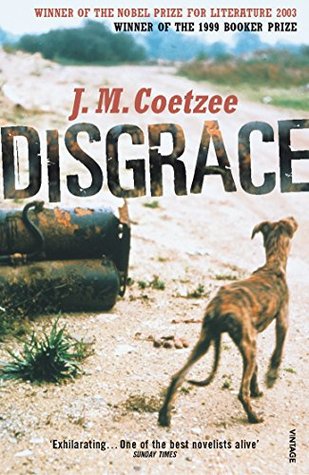More on this book
Community
Kindle Notes & Highlights
In the desert of the week Thursday has become an oasis of luxe et volupté.
He has toyed with the idea of asking her to see him in her own time. He would like to spend an evening with her, perhaps even a whole night. But not the morning after. He knows too much about himself to subject her to a morning after, when he will be cold, surly, impatient to be alone.
He is in good health, his mind is clear. By profession he is, or has been, a scholar, and scholarship still engages, intermittently, the core of him. He lives within his income, within his temperament, within his emotional means. Is he happy? By most measurements, yes, he believes he is. However, he has not forgotten the last chorus of Oedipus: Call no man happy until he is dead.
Because he has no respect for the material he teaches, he makes no impression on his students. They look through him when he speaks, forget his name. Their indifference galls him more than he will admit.
The irony does not escape him: that the one who comes to teach learns the keenest of lessons, while those who come to learn learn nothing.
In the kitchen of the flat in Green Point there are a kettle, plastic cups, a jar of instant coffee, a bowl with sachets of sugar. The refrigerator holds a supply of bottled water. In the bathroom there is soap and a pile of towels, in the cupboard clean bedlinen. Soraya keeps her makeup in an overnight bag. A place of assignation, nothing more, functional, clean, well regulated.
It surprises him that ninety minutes a week of a woman’s company are enough to make him happy, who used to think he needed a wife, a home, a marriage. His needs turn out to be quite light, after all, light and fleeting, like those of a butterfly. No emotion, or none but the deepest, the most unguessed-at: a ground bass of contentedness, like the hum of traffic that lulls the city-dweller to sleep, or like the silence of the night to countryfolk.
He himself has no son. His childhood was spent in a family of women. As mother, aunts, sisters fell away, they were replaced in due course by mistresses, wives, a daughter. The company of women made of him a lover of women and, to an extent, a womanizer. With his height, his good bones, his olive skin, his flowing hair, he could always count on a degree of magnetism. If he looked at a woman in a certain way, with a certain intent, she would return his look, he could rely on that. That was how he lived; for years, for decades, that was the backbone of his life.
She is small and thin, with close-cropped black hair, wide, almost Chinese cheekbones, large, dark eyes. Her outfits are always striking. Today she wears a maroon miniskirt with a mustard-coloured sweater and black tights; the gold baubles on her belt match the gold balls of her earrings.
Wine, music: a ritual that men and women play out with each other. Nothing wrong with rituals, they were invented to ease the awkward passages.
‘Maybe. But in my experience poetry speaks to you either at first sight or not at all. A flash of revelation and a flash of response. Like lightning. Like falling in love.’
‘Thirty-six. They all died young. Or dried up. Or went mad and were locked away. But Italy wasn’t where Byron died. He died in Greece. He went to Italy to escape a scandal, and settled there. Settled down. Had the last big love-affair of his life. Italy was a popular destination for the English in those days. They believed the Italians were still in touch with their natures. Less hemmed in by convention, more passionate.’
‘Why? Because a woman’s beauty does not belong to her alone. It is part of the bounty she brings into the world. She has a duty to share it.’
He could At times resign his own for others’ good, But not in pity, not because he ought, But in some strange perversity of thought, That swayed him onward with a secret pride To do what few or none would do beside; And this same impulse would in tempting time Mislead his spirit equally to crime.
He doesn’t act on principle but on impulse, and the source of his impulses is dark to him. Read a few lines further: “His madness was not of the head, but heart.”
Suffice it to say that Eros entered. After that I was not the same.’
‘You were not the same as what?’ asks the businesswoman cautiously. ‘I was not myself. I was no longer a fifty-year-old divorcé at a loose end. I became a servant of Eros.’
‘Because it would help to cool down what has become a very heated situation.
A group of children pass him on their way home from school. He greets them; they greet him back. Country ways. Already Cape Town is receding into the past.
They do us the honour of treating us like gods, and we respond by treating them like things.’


